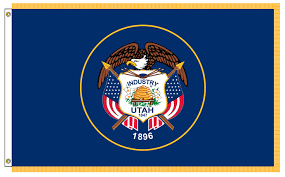 By Bryan Benard
By Bryan Benard
The results from an unprecedented research study seeking input from 2,000 Utah employees and 937 Utah employers about the use of non-compete agreements has just been released and can be viewed on the Salt Lake Chamber of Commerce website here:
http://slchamber.com/noncompetestudy/
Initial Reactions
Some interesting results jump out immediately. Based on the responses, 18% of Utah employees currently have a signed non-compete with their employer. 35% of the employee respondents indicated that at some point in their careers, they had been asked to sign a non-compete. 96% of employee respondents stated that they were aware that they were signing a non-compete when they signed the agreement. 40% of employees with current non-competes in Utah believed their non-compete agreement was fair or moderately fair, while another 34% believed that their non-compete was somewhat fair. 26% of employees did not believe that their current non-compete was fair. 51% of responding employees indicated that they were ok signing a non-compete if the terms were fair.
The study seemed to confirm that last year’s non-compete bill, limiting non-competes to one year in duration, was an appropriate duration. 90% of employer respondents, and surprisingly, 74% of employee respondents, responded that Utah law should allow non-compete agreements if they are supported by consideration/value and are reasonable in scope and duration. Most employee and employer respondents indicated that they believed it was rare that a non-compete agreement dispute resulted in a court case.
Through focus group research, in addition to the survey question results, some areas of overlapping agreement appears likely between positions held by employers and employees. Some themes indicate that there could be some consensus relating to not allowing usage of non-competes with lower wage earners and perhaps requiring more notice to employees about non-competes at the beginning of employment. The survey results are extensive and impressive, and will require significantly more review and consideration.
Legislative Response
Good information should drive good policy decisions. Speaker Greg Hughes, Representative Mike Schultz, and Representative Tim Hawkes have been very committed to the research-first process. They have supported this unprecedented effort at collecting Utah-specific information that will then drive their policy decisions.
With only 9 business days left in this legislative session, thoughtful legislation based on these results would be very difficult, if not impossible, to propose, debate, and consider. Hours after the results were released, Representative Schultz indicated that rather than pursuing legislation on non-compete agreements this year, he and Representative Hawkes remain committed to working with the working group and other stakeholders to utilize this research and take sufficient time to consider further legislation. Here is his statement. As a result, it looks like there will be no further legislative action on non-compete agreements this session but continued work will take place before the 2018 legislative session.
Research Study Process
During the 2016 Legislative session, a working group was formed to try to reach a compromise on the 2016 non-compete bill. The working group consisted of the legislators proposing the non-compete legislation, business leaders (Randy Shumway, Vance Checketts, Jeffrey Nelson, and Dan Sorenson), the Salt Lake Chamber (Lane Beattie, Abby Osborne and Michael Parker), the Governor’s Office of Economic Development (Val Hale, Aimee Edwards), and Bryan Benard of Holland & Hart LLP. After the session, the working group discussed the concept of a Utah-specific research study of Utah-based employees and employers, related to the use of non-competes in Utah. The Cicero Group was tasked with conducting the research study and the study was funded 50/50 by the Legislature and the business community.
The survey questions were developed by Cicero group in conjunction with two employment law lawyers who donated their time, Jaqualin Friend Peterson (employee-side) and Bryan K. Benard of Holland & Hart LLP (employer-side). Input was then sought from each legislator, the business community, and the public, with all comments and suggestions reviewed, discussed, and addressed through several revisions to the study questions. Hundreds of hours were spent in this process to prepare a comprehensive, unbiased survey—one tailored to employees and one for employers that covered the same issues.
The survey was conducted over several months with 2,000 employees and 937 employers responding. Employees from a broad variety of private companies (both large, medium and small in size) were eligible. Employers of diverse industries and sizes were also eligible. Focus groups were also conducted by the Cicero group as were interviews of potential investment firms. The full methodology is set forth in the survey results.
Next Steps
Digesting and understanding the research results will be a large task given the comprehensive and unique nature of the survey itself. While there is academic research and writing on this topic, this type of specific employee/employer responses seems unique and provides a fascinating perspective. And it is certainly full of important information for Utah legislators to absorb and consider. The Salt Lake Chamber will also host two open houses with the Cicero research team on February 28 and March 1, 2017, from 2-4 p.m. at the Chamber.
The study results also provide helpful information for employers to consider and assess with respect to their own practices. Given this large undertaking, it is likely that the information will be discussed, and potential legislation may arise on this topic, for years to come.
Finally, the exceptional work by the Cicero Group should be commended and recognized. Also, the leadership of the Salt Lake Chamber was the driving force to this process and was invaluable.



 By
By 

 By
By 



